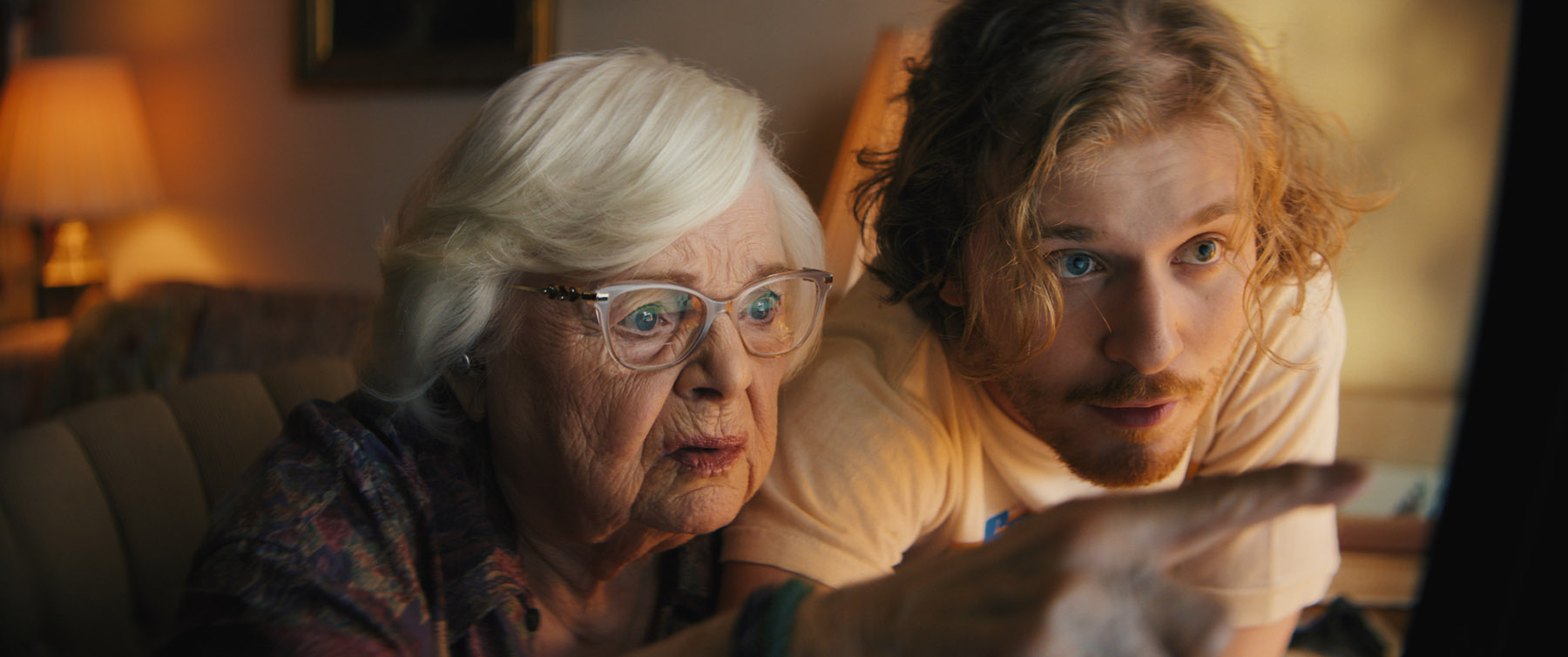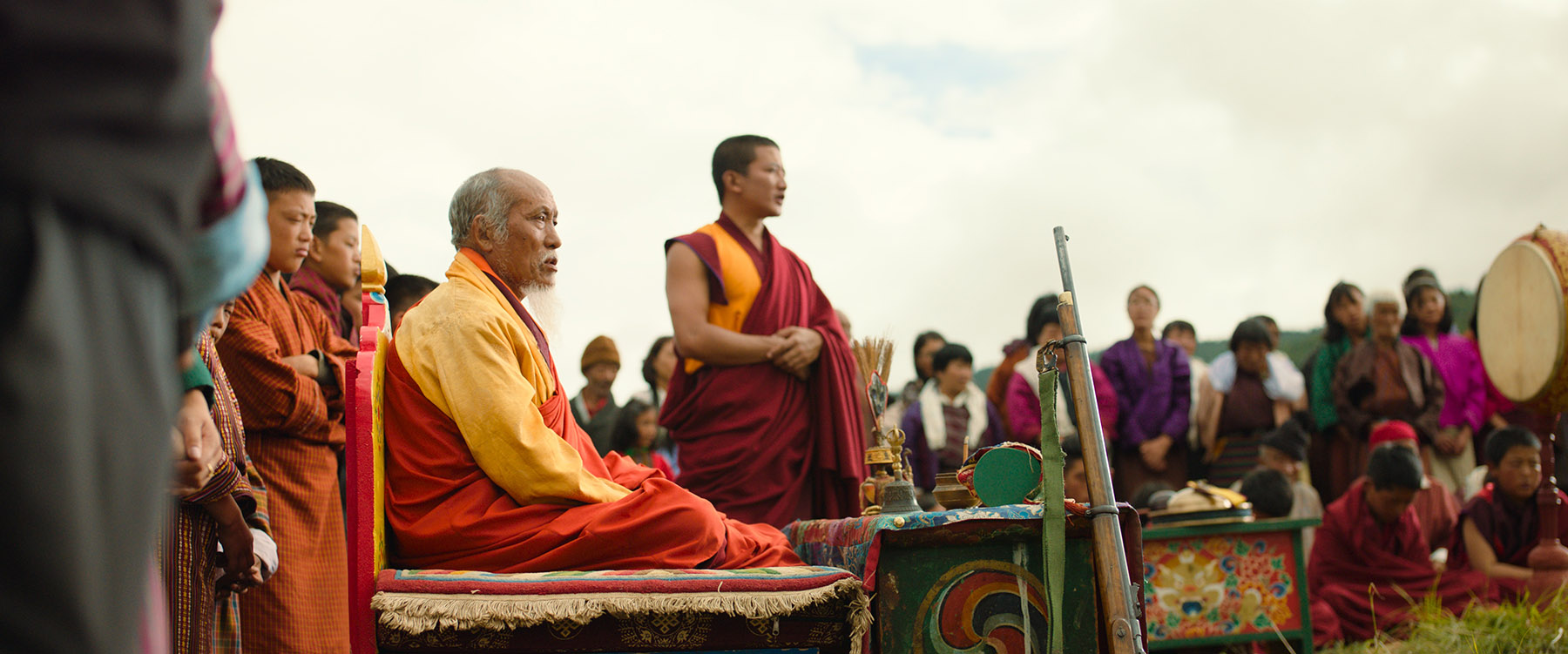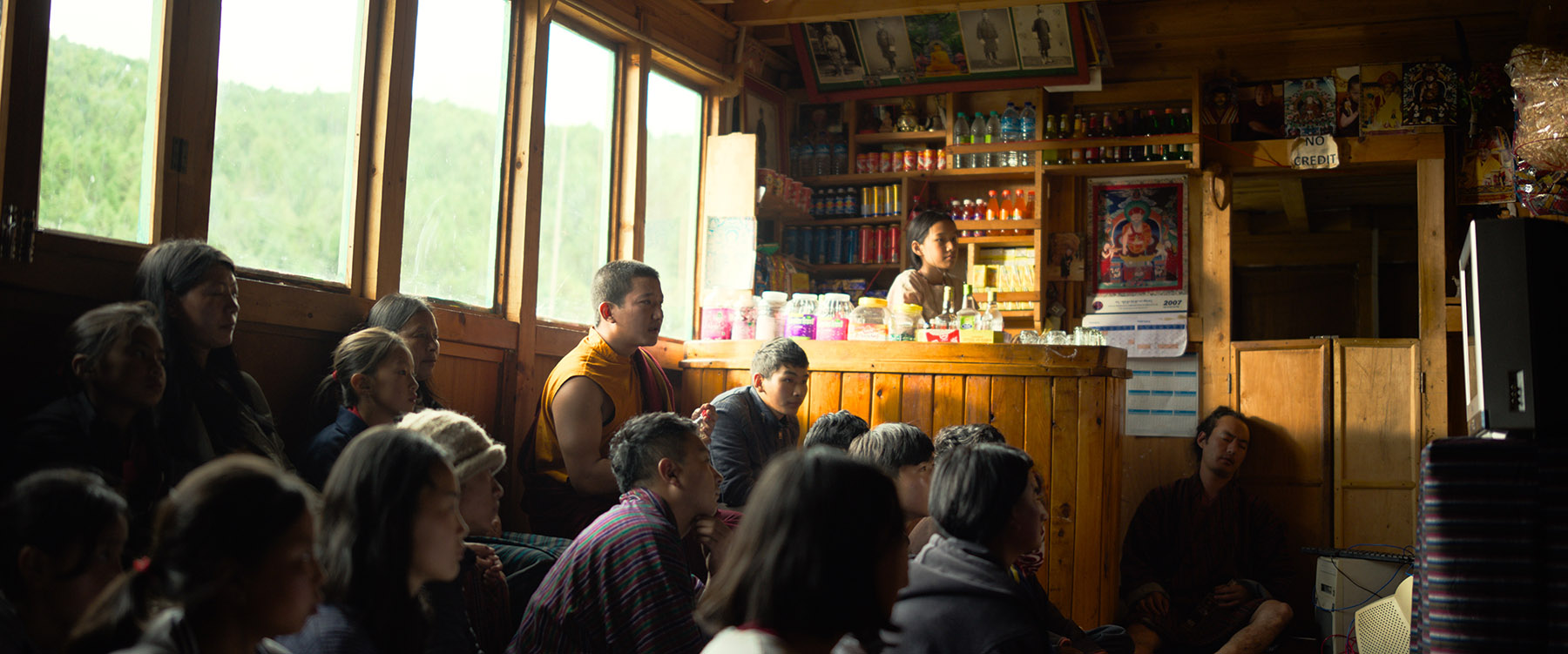
Josh Margolin’s Thelma and Pawo Choyning Dorji’s The Monk and the Gun are the kind of unassuming, adult comedy-dramas that used to flood cinemas as a counterbalance to what has become “summertime” fare: noisy action flicks and superhero sequels. In years past, there always used to be modestly budgeted films free of flashy visual effects that relied on storytelling and fresh ideas at the multiplex, right down the hall from the car chases and fireballs. Those films now go to streaming. So it’s remarkable when cinemas find space for screening meaningful stories about people’s quest for self-determination, like Thelma and The Monk and the Gun.
READ MORE: Get immersed in Europe’s finest
In some ways, Thelma fits right in with summer fare. It’s an action movie of sorts — just not with the hero we expect. When 93-year-old grandmother Thelma (June Squibb, Nostalgia in Inside Out 2) gets a phone call from a lawyer demanding $10,000 in bail money for her doting grandson Daniel (Fred Hechinger, The White Lotus), she scrounges up most of her savings and sends it to the suburban Los Angeles address she is told to. It’s not long before Thelma realizes that she’s been scammed, and when she overhears her family discussing how perhaps the time has come to put her in a care home, she sets out to prove she’s still vital and recover her money with help from old friend Ben (the legendary Richard Roundtree in his last role).

Similarly, The Monk and the Gun is something of a caper in which the village lama (Kelsang Choejay) tasks devoted Bhutanese monk Tashi (Tandin Wangchuk) with finding two guns for use in a mysterious ceremony. It’s 2006. Bhutan is democratizing, and fearing the worst. The lama has a plan to make things right again. It involves Tshering Yangden (Pema Zangmo Sherpa), a voter registration official, coming to town. Meanwhile, an antique collector (Harry Einhorn) hires Westernized local guide Benji (Tandin Sonam) to help him locate an American Civil War-era rifle that’s turned up somewhere near Tashi’s village. The three missions eventually collide.
As different as they are, both films operate on a low register, reveling in little details and astute observations, and both couch serious issues in gentle humor. There are plenty of easy comic targets: Thelma is hopeless with email; in the course of a montage she realizes that most of her friends are dead; Tashi marvels at the “hero” he sees on the village TV (James Bond) while enjoying some “black water” (Coke).


But neither Margolin nor Dorji punch down, and both films provide plenty to think about. Both Thelma and Ben have their reflective moments, but Thelma gets her first taste of independence in 93 years — a feeling she wants to hold onto just a little longer. Beneath all that is an examination of how adult children attach expiry dates to parents, how we tend to dispose of the elderly when they become inconvenient, and so leave them open to things like phone fraud. Seniors are not “dumb enough” to get suckered; they’re desperate to feel useful in the face of obsolescence.
ALSO READ: A prodigal daughter hitchhikes her way home
For Bhutan, democracy isn’t a bad thing, but it must come into alignment with the country’s traditions and its people’s core beliefs — those that have served them well for two millennia. In exploring a complex transition, Dorji elegantly spotlights what makes Bhutan the place it is without fetishizing the country and quietly arguing that tradition and modernity can indeed co-exist. Margolin’s happy ending for Thelma includes acceptance of a new reality, while Dorji subverts our expectations of gun imagery to end on a note as defiantly hopeful as the infancy of Bhutan’s democracy.


